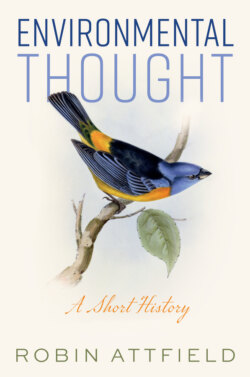Читать книгу Environmental Thought - Robin Attfield - Страница 15
Roman circuses and related protests
ОглавлениеGreek hunting was inhibited by the expectation that hunters would respect the sanctity of sanctuaries such as groves sacred to deities (Coates 1998: 37). But leading Roman public figures introduced so-called ‘hunts’ (venationes) to public arenas as popular entertainment, with contests between, for example, bulls and rhinoceroses, or between spearsmen and elephants. These spectacles attained such proportions that the procurement of larger wild animals, both from Roman territories and from dependent states, may have been responsible for the complete disappearance of these species from North Africa and the Near East (Coates 1998: 38). The Romans were so unconcerned about biodiversity that they did not even notice that they were curtailing it.
The best-known protest against these displays was expressed by Marcus Tullius Cicero, in one of his letters to his friends (Epistulae ad familiares VII, 1, 3). Cicero relates, in Torill Christine Lindstrøm’s paraphrase: ‘When the elephants tried to escape by starting to break down the iron bars that held them in place, people were terrified and, finally, when the elephants simultaneously started to trumpet in desperation, the spectators rose to their feet and, weeping, cursed Pompey for his cruelty’ (2010: 319). Although this was an untypical reaction, Cicero found in it ‘misericordia’ or compassion, and a sense that there was after all some common bond between people and beasts. Later, a more general protest about the maltreatment of animals in the arena was expressed by Plutarch, the celebrated Platonist writer (46–120 CE) (Hughes 1994: 111).
Yet such responses were rare, and Coates rightly remarks that the characteristic Roman (and Greek) attitude to natural creatures was ‘manipulative’ (1998: 39). Modern bull-fighting is a relic of such ancient entertainments. But it is worth adding that Christians of the Roman Empire were forbidden to attend gladiatorial contests, or contests between beasts or between humans and beasts, on pain of excommunication (Singer 1975: 210), and that the reason given by the Christian Minucius Felix (early third century CE) for this ban was that the games were both impious and cruel (Migne 1844–63: 3:354). Eventually, contests between men and beasts were condemned by the Council of Trullo (691–2) and had ceased in the Eastern Empire by the end of the seventh century (Lecky 1913 [1869]: 2:37); they ceased in the Western Empire with the fall of Rome (fifth century CE). The cessation of these contests should not have taken so long; but the more recent lengthy struggle to end slavery shows for how long vested interests can defend the indefensible. It is at least to the credit of Christians that these contests were finally abolished.
Ancient Greek and Roman perspectives on nature thus prove to have been extremely diverse, while many have had lasting impacts on later history (Schliephake 2016). But understanding later history also involves grasping the largely distinct history of Judaism and Christianity at that time. To this history we now turn.
